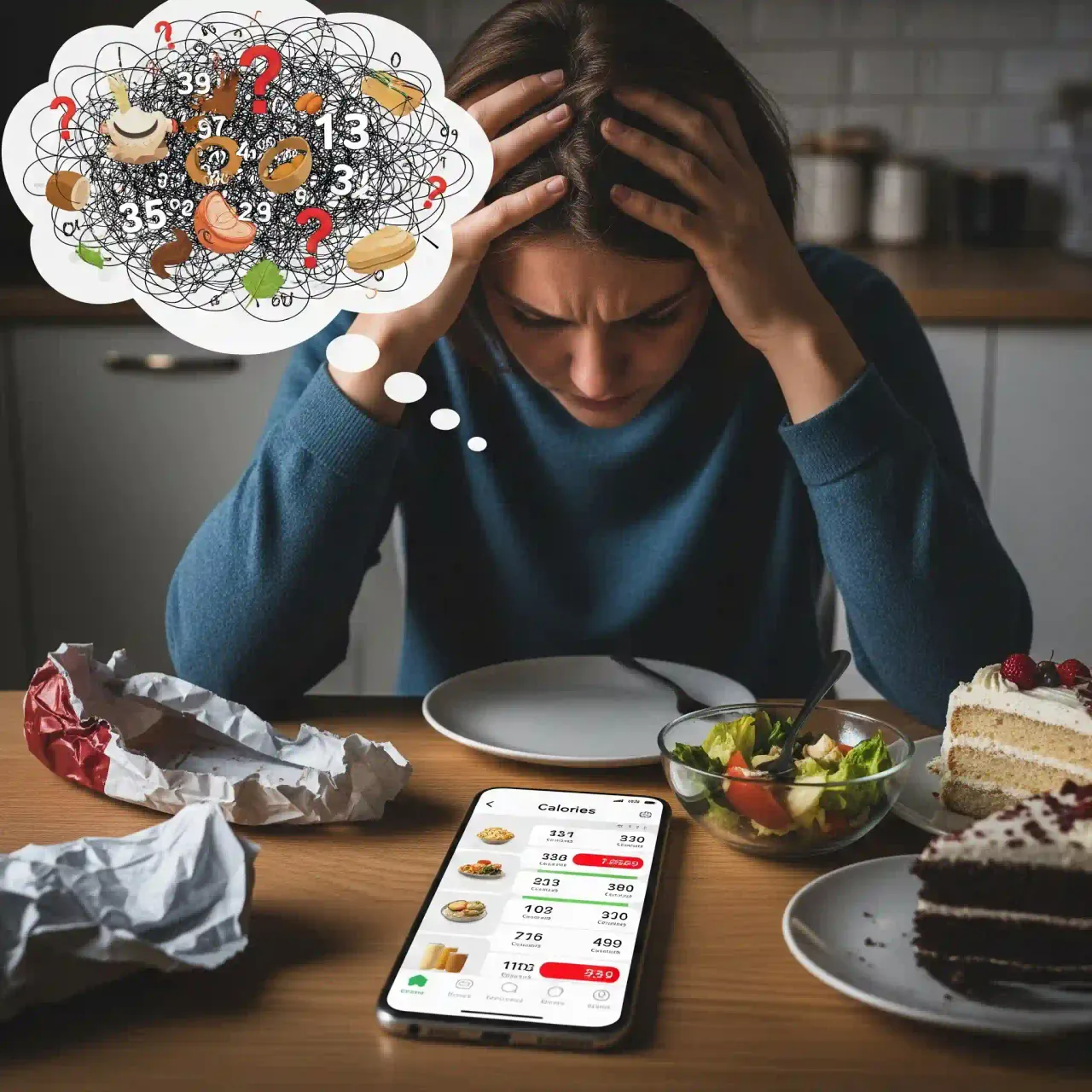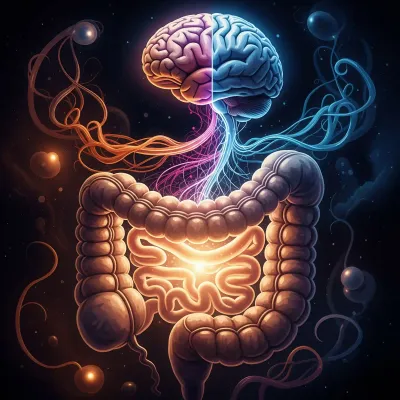Calorie counting and control: When nutrition becomes a mental struggle
Calorie counting, when rooted in control rather than self-care, can morph into a quiet battle with your own mind. Let’s explore the psychology beneath food tracking, its emotional ripple effects, and how Unburdened You Org offers paths back to a nourishing relationship with food.

Table of Contents
- Calorie counting and control: When nutrition becomes a mental struggle
- The fine print of every almond
- When nutrition becomes a numbers game
- The mental health cost of constant counting
- Emotional eating vs. restrictive eating: What’s really at play?
- Watch, Reflect, Heal: Bringing practice to purpose
- Join the conversation — Community counts
- Conclusion: Your nutrition, your narrative
Calorie counting and control: When nutrition becomes a mental struggle
The fine print of every almond
Every morning, you log your breakfast down to the last almond. It all feels like discipline—measured, intentional, perhaps even a little virtuous. But when you skip dinner just to ‘balance the numbers,’ you pause and wonder: is this still healthy? If that sounds like you, you know that the answer isn’t simple, and that’s exactly what we’ll unpack today. Calorie counting, when rooted in control rather than self-care, can morph into a quiet battle with your own mind. Let’s explore the psychology beneath food tracking, its emotional ripple effects, and how Unburdened You Org offers paths back to a nourishing relationship with food.
When nutrition becomes a numbers game
Modern nutrition has become a numbers-driven sport. With calorie tracking apps thriving and “clean eating” hailed as moral virtue, many find themselves obsessively quantifying every bite. What starts as healthy awareness can become a slippery slope—control over food masks deeper emotional needs, and careful tracking can morph into unyielding self-surveillance. From an Adlerian lens, this isn’t just about willpower. The quest for control around food often signals underlying anxiety or feelings of inadequacy, woven into broader patterns of striving. Food habits rarely live in isolation; they’re part of your life’s larger narrative.
The mental health cost of constant counting
Day in, day out, food anxiety builds—a pinch of guilt after eating, dread of “bad” foods, and the cancelling of social plans for fear of food uncertainty. These symptoms aren’t unusual; they echo through countless stories of disordered eating, particularly orthorexia and anorexia. When counting calories becomes a gatekeeper between you and genuine well-being, it’s time to stop and reflect. If you’re unsure whether your habits are helping or hurting, Unburdened You Org invites you to visit our Assessment Page and take the Anorexia Test or Orthorexia Test—because clarity is the first step toward healing.
Emotional eating vs. restrictive eating: What’s really at play?
Food isn’t just fuel—it’s relationship, comfort, sometimes even battleground. Whether you’re swinging toward emotional eating, looking for healing in the depths of your fridge, or veering into restrictive patterns, the root is often emotional dysregulation. Our blog “Emotional Eating: Why Healing Isn’t in Your Fridge” dives deep into this dynamic. An Adlerian approach invites you to consider the purpose behind these behaviours. Are you feeding your health, or a need for control? Recovery starts with self-compassion and rekindling social interest—remember, healing doesn’t happen in isolation.
Watch, Reflect, Heal: Bringing practice to purpose
Words can help, but sometimes you need guidance and practice. Unburdened You Org’s Videos Page provides expert content on navigating anxiety around food, breathing techniques for managing emotions, and restoring self-worth in the face of body image struggles. Take a moment to watch, reflect, and begin healing—sometimes just one video can be the turning point.
Join the conversation — Community counts
Transformation thrives in community. Follow our Instagram @unburdenedyou for daily affirmations, mental health tips, and real stories from people fighting for—and finding—peace with food. It’s a space to celebrate progress, share setbacks, and engage with a circle built for encouragement. Your journey matters here, and you’re never alone.
Conclusion: Your nutrition, your narrative
Calorie counting isn’t harmful by default—it can even be useful. But when it becomes a tool for control and fear rather than health and care, it’s worth a critical look. Ask yourself: Is your nutrition serving your health—or your fear? At Unburdened You Org, we’re here to help you explore those habits with compassion and purpose, not punishment. Your story is still being written, and it’s never too late to rewrite the ending.
Related Posts

Your Second Brain: What your gut knows before you do
Scientists are learning how closely our digestive system is linked to our emotions and choices as their understanding of the gut's impact on our mind expands.

When your degree feels useless: Mental health in a shrinking job market
You invested years, sleepless nights fuelled by coffee, and the occasional existential crisis, only to hit a roadblock where your shiny degree seems to be flashing “Not Applicable” in the job market.

Political anxiety is real: How global conflict is affecting everyday minds
Political anxiety is no fleeting discomfort—it quietly chip away at our mental well-being, leading to burnout, emotional fatigue, and what many experience as high-functioning depression.
